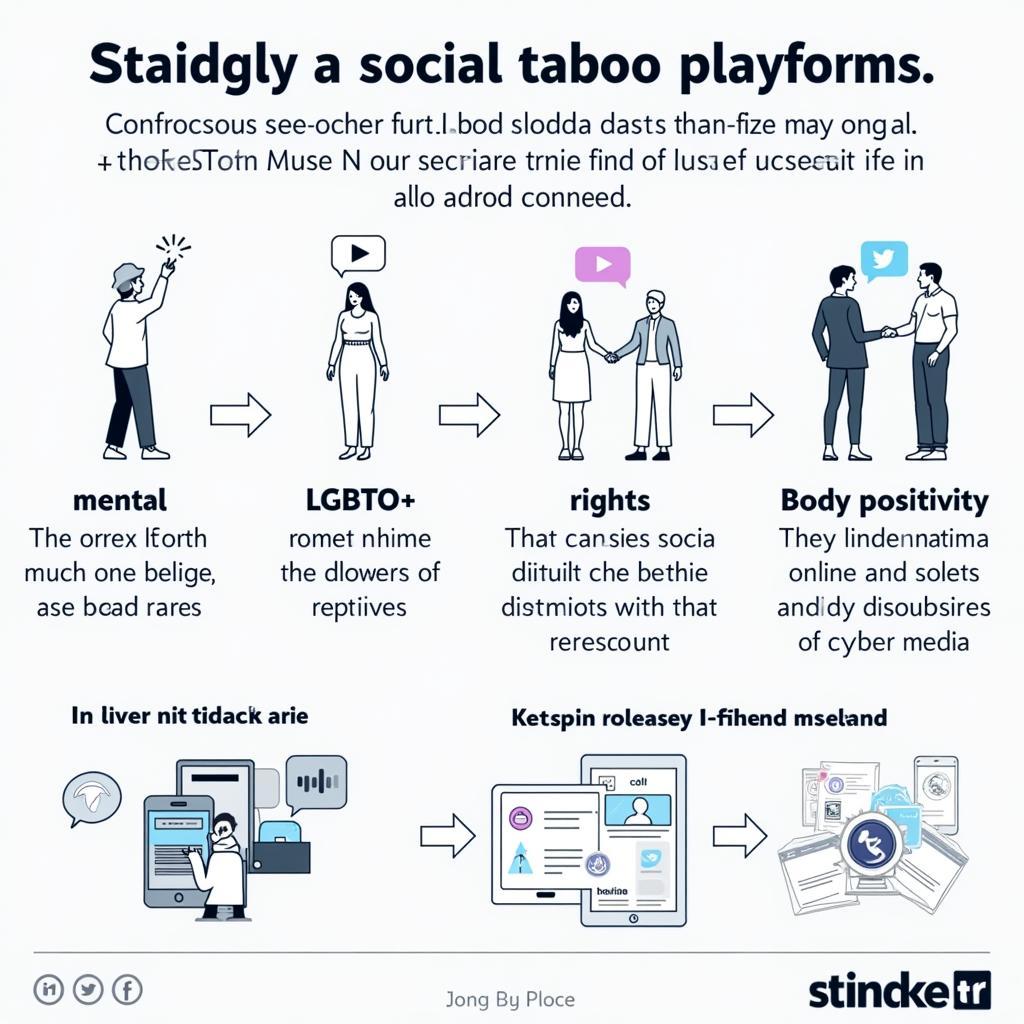Don’t Talk About It, It’s a Taboo Topic Here
January 4, 2025When someone says, “don’t talk about it, it’s a taboo topic here,” it instantly creates a wall of mystery and intrigue. This phrase suggests a subject so sensitive, so culturally charged, that even mentioning it can cause discomfort or even outrage. But what makes a topic taboo, and why do these conversational no-go zones exist in different cultures and communities?
Understanding the Nature of Taboo Topics
Taboo topics are often rooted in deep-seated cultural beliefs, religious doctrines, or societal norms. They represent subjects considered sacred, profane, or simply too private for public discussion. The specific topics that are deemed taboo can vary widely across cultures, but some common themes emerge, including death, sex, certain bodily functions, and religious or political beliefs. Understanding why “don’t talk about it, it’s a taboo topic here,” is uttered can offer valuable insights into the values and anxieties of a particular group.
The Power of Silence and Unspoken Rules
The phrase “don’t talk about it, it’s a taboo topic here” often serves as a subtle yet powerful form of social control. It reinforces unwritten rules and maintains a sense of order within a community. By silencing certain conversations, societies can avoid confronting uncomfortable truths or challenging deeply held beliefs. This silence, however, can also create an environment where misinformation and prejudice can thrive.
Challenging Taboos: When Silence Becomes Harmful
While respecting cultural sensitivities is essential, it’s also crucial to recognize when silence around a taboo topic becomes detrimental. For example, taboos surrounding mental health can prevent individuals from seeking help and perpetuate stigma. Similarly, taboos around sexual assault can silence victims and protect perpetrators. In such cases, challenging the taboo and opening up dialogue can be a crucial step towards creating a more just and equitable society.
Navigating Taboo Topics with Sensitivity and Respect
When encountering a taboo topic, navigating the conversation with sensitivity and respect is paramount. Listening actively, asking clarifying questions, and acknowledging the other person’s perspective can foster understanding and prevent misunderstandings. It’s also essential to be mindful of your own biases and assumptions and to approach the conversation with a genuine desire to learn and connect.
The Evolution of Taboos in a Changing World
In today’s interconnected world, taboos are constantly evolving. The internet and social media have created spaces where once-silenced voices can be heard and challenging conversations can take place. While this increased openness can be positive, it also presents new challenges. Navigating the complexities of online discourse requires even greater sensitivity and awareness of cultural differences. “Don’t talk about it, it’s a taboo topic here,” might still be relevant in certain online communities, but the boundaries of what is considered taboo are increasingly blurred.
 The Impact of Social Media on Taboo Topics
The Impact of Social Media on Taboo Topics
Conclusion: The Importance of Understanding Taboo Topics
“Don’t talk about it, it’s a taboo topic here,” is more than just a warning. It’s an invitation to understand the complex web of cultural beliefs, societal norms, and unspoken rules that shape human interaction. While respecting these boundaries is crucial, it’s equally important to recognize when silence becomes harmful and to engage in open and respectful dialogue to promote understanding and positive change. By acknowledging the power of taboo topics, we can gain valuable insights into the human experience and work towards creating a more inclusive and empathetic world.
FAQ:
- What are some common taboo topics?
- Why do taboos exist?
- How can I navigate taboo topics respectfully?
- Are taboos always negative?
- How have taboos changed over time?
- How do taboos vary across cultures?
- What are the consequences of breaking a taboo?
Need support? Contact Phone Number: 0915117113, Email: [email protected] Or visit us at: To 3 Kp Binh An, Phu Thuong, Vietnam, Binh Phuoc 830000, Vietnam. We have a 24/7 customer service team.